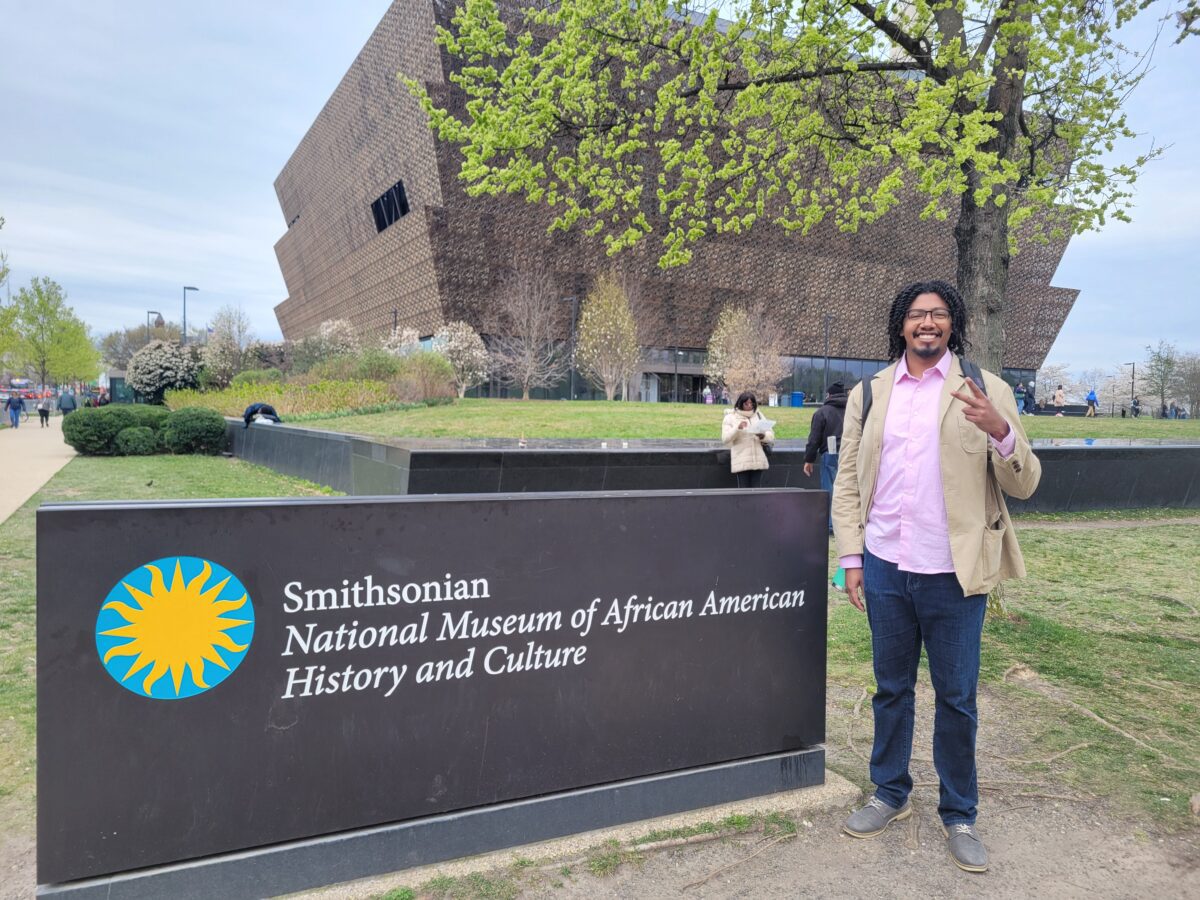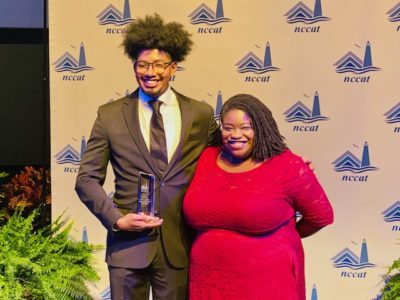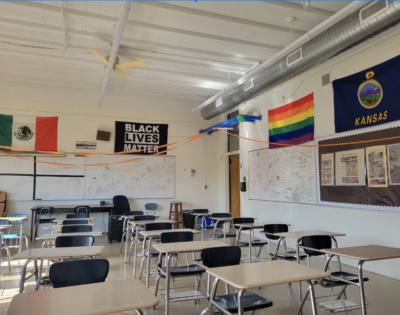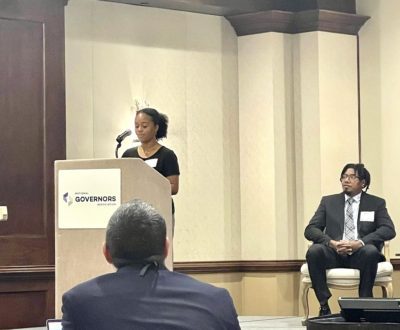
|
|
The day after President Trump was elected, students gathered in my classroom to talk about how this news was impacting them: they believed policymakers and voters had taken away their safety.
Students wondered who would care for children in mixed-status households if their parents were deported; was it possible for Trump to deport anyone he labeled as a threat; and, why did so many people get hope from a president promising to get rid of people — immigrants — who are trying to be the best neighbors that they can be?
I understood my students’ concerns. But, do their fears and anxieties count for anything? Do their lives matter?
To create safer classrooms for my students, policymakers and teachers must expand students’ access to accounts of history that represent the diversity of people in our society, rather than trying to remove these topics from public schools.
The importance of a diverse history curriculum
Learning about history is a discipline of learning to love ourselves and our neighbors.
In my AP and honors African American Studies class, we read an excerpt from bell hooks book We Real Cool: Black Men and Masculinity. In her book, hooks criticizes the way our society raises young Black boys by demonstrating how the messages that we share with them about masculinity cause them to be emotionless, calloused, and even violent.
Last school year, two months into the semester, my class had built enough trust with each other to discuss questions like: what messages were you given about emotions growing up; when was the last time you saw your dad cry; and, if you haven’t seen your dad cry, how does that make you feel? The point of this activity wasn’t to suggest that fathers that don’t cry are toxic. Instead, it was to facilitate a conversation about our shared humanity: life can be difficult, so we need to learn to express our emotions in a healthy way. When we reflect on our personal history, we can heal ourselves and our families from the past.
Discussions about national history operate similarly in my classroom: we have inherited a legacy of oppression and opportunity. When we take these stories seriously, they keep us accountable to our principles of honesty, hope, and love.
The politicization of teaching an inclusive history
From the time I started teaching, there has been a continuous effort to ban what I teach. In Hillsborough, Moms For Liberty has organized to ban books and prevent conversations about Social-Emotional Learning (SEL). In North Carolina, Republicans proposed House Bill 324 in 2020 and House Bill 187 in 2023 to prevent teachers and students from speaking about racial and gender identity. And, in January, Trump signed an executive order titled “Ending Radical Indoctrination in K-12 Schooling,” to remove federal funding for public schools that promote Diversity, Equity, and Inclusion (DEI) programs and curriculums — like cultural studies classes.
This year, the N.C. General Assembly passed Senate Bill 227 to eliminate DEI in public education. Gov. Josh Stein vetoed it, and it awaits a vote to override the veto. Republicans will be able to override this veto and make this bill law if just one Democratic member in the N.C. House of Representatives votes with them.
The attempts of politicians and community members to censor history is more than a professional matter for me; it’s personal. I’m four generations removed from slavery. My parents went to segregated high schools when Dr. King was assassinated. I have two degrees from Duke University, and I’m our state’s first Black and Latino Beginning Teacher of the Year. I can’t make sense of my own success without appreciating how my ancestors resisted the legislation and violence in their lives to create an opportunity for me. So, when people attempt to whitewash history, I don’t just think of Harriet Tubman disappearing: I think of my great great grandma Liza who was a sharecropper that spoke out against her boss’ attempts to terrorize her husband — who was emancipated from slavery.
Some politicians fear these conversations cause people to feel shame, but when I study my history of pain, resilience, and accomplishment, I don’t feel embarrassed. Instead, I want to be a better neighbor.
In my experience, cultural studies classes empower all people to feel comfortable with being themselves.
Recognizing the opportunities in NC legislation
Previously, in North Carolina, policymakers created an effective template for meaningfully teaching history in our public schools. In 2022, the Gizella Abramson Act required Holocaust History to be taught in all 6th through 12th grade English and history classrooms. So, a curriculum was developed through a pilot program that included 52 teachers and 1,500 students from each region of the state. Significantly, this legislation passed with strong bipartisan support, and it demonstrates our legislators’ belief that students can handle discussing these topics.
Our state desperately needs students to learn about the Holocaust. Students also need to know how many people voted for Mark Robinson — a gubernatorial candidate with a well-documented history of anti-Semitic remarks, culminating with the claim of being a Black Nazi.
I believe our classrooms can be the first sites of healing for our state.
When I teach my students about Nazi Germany, I begin on a personal level with this 2014 video: during my first year of college, Reat Underwood, a teenager that I grew up with through boy scouts was killed at a synagogue by Frazier Glenn Miller Jr., a neo-Nazi and former KKK member. As a teacher, I emphasize to my students that the ideas that motivated ordinary people to build Nazi Germany still exist today. And, as a Black person, I lead my students through an analysis of different rap lyrics that the Black community has created that perpetuate anti-Semitic tropes and conspiracy theories that falsely label Jewish people as both greedy and controlling media corporations — ideas that justified scapegoating Jewish people during the Holocaust. Studying history is important, so we can protect my students from contemporary efforts to isolate and blame their communities.
But, if Senate Bill 227 is passed, Jewish history and Black history will be limited to an “impartial discussion” of memorizing facts, dates, and people, rather than a meaningful analysis of personal stories that are connected to a contemporary society that still plays out the very histories we seek to understand.
Therefore, we will teach an incomplete Holocaust history because the German laws that denied Jewish people citizenship and required them to wear yellow stars in public were made as the Nazis studied the Jim Crow laws of the United States, which denied Black people voting rights and segregated schools and hospitals.
To speak of Nazism and anti-Semitism requires us to speak of White Supremacy and Anti-Blackness. To engage with history requires us to analyze contemporary political rhetoric, so North Carolina can heal.
The vague language in Senate Bill 227 will effectively result in the self-censorship of cultural studies curriculums in some areas as local school boards, administrators, and teachers have to determine what they think the law permits them to teach because the bill does not define: 1) who gets to establish the terms of impartiality; and, 2) consequently, what are the terms of impartiality that teachers must follow.
For instance, would I still be allowed to honor Reat’s legacy in my classroom as I talk about the insidious nature of anti-Semitism and how it still impacts people beyond the textbooks that we read? And, in places like Johnston County — which recently banned teachers from displaying pride flags in their classrooms and is trying to determine if LGBTQ students and staff should still be protected under their district anti-discriminatory policies — where local authorities might outright ban cultural studies curriculum to be in compliance with the law.
What we can do
In what students bring up in discussions in class and in what they write, political discourse often enters into our school buildings not because teachers initiate these conversations but because family conversations about the nightly news and social media impact how students see and treat their classmates.
Therefore, policymakers should collaborate with students, parents, and teachers by passing laws that follow the example of the Gizella Abramson Act to develop nuanced curriculum about complicated histories. Policymakers can work with trusted experts – specifically members of respective communities — to develop lesson plans alongside teachers and students on the history of other marginalized people in the United States.
Additionally, legislators should allocate funds to our state’s educator preparation programs to equip future teachers to both be sensitive to the diversity of cultures that North Carolina’s students have and to be able to facilitate nuanced conversations around identity and history in classrooms.
And, as Governor Cooper’s Drive Task Force reported, increasing teacher pay and honoring diversity through our curriculum will lead to higher recruitment and retention of a diversity of teachers, which leads to greater student belonging and success, according to this Stanford University report.
These policies would allow North Carolina to fulfill the promise of our state’s constitution, which asserts that knowledge is fundamental to developing a well-run society that allows all people to experience happiness.
We don’t get to choose the history that we inherit, but we can choose how we respond to it by making a better society for all of North Carolina’s students.
Recommended reading




